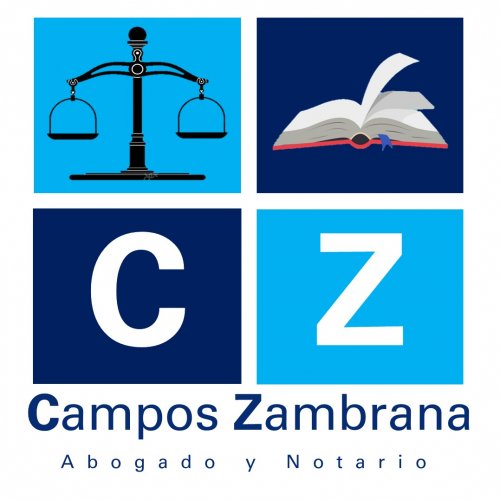Best Estate Planning Lawyers in Jinotepe
Share your needs with us, get contacted by law firms.
Free. Takes 2 min.
List of the best lawyers in Jinotepe, Nicaragua
About Estate Planning Law in Jinotepe, Nicaragua:
Estate planning in Jinotepe, Nicaragua, involves creating a plan in advance that determines who will benefit from your assets during your life and after your death. This legal process aims to protect people’s rights and assists in the distribution of assets, according to the deceased's will or local intestacy laws when no will exists. It often includes drafting of wills, trusts, power of attorney documents, and other necessary legal forms.
Why You May Need a Lawyer:
A lawyer is typically needed in complex situations, such as when you have substantial assets, own a business, have minor or dependents, or wish to establish a trust. Lawyers can also resolve disputes between the executors and beneficiaries of the estate. They provide guidance to ensure the legality, accuracy, and completion of all documents, preventing the possibility of disputes or misinterpretations later on.
Local Laws Overview:
In Nicaragua, intestacy laws dictate the distribution of assets when a person dies without a legal will. The law generally favors direct descendants, followed by indirect descendants, and then the spouse. If there are no descendants or surviving spouse, then parents or relatives up to the fourth degree inherit. Note, the Nicaraguan law doesn’t recognise trusts, but it does recognise the concept of a will. Therefore, drafting a clear and concise will is vital in estate planning.
Frequently Asked Questions:
1. What is the importance of writing a will?
A will protects your rights and ensures your assets are distributed according to your wishes after death. If you die without a will, the state laws determine how your assets are divided among your heirs.
2. What happens if I die without a will in Jinotepe, Nicaragua?
If a person dies without a will, local intestacy laws will dictate the distribution of the assets. Generally, the deceased’s assets are divided among the children and surviving spouse. If no descendants or spouse exist, parents or relatives up to fourth degree inherit.
3. Can I change my will after it has been written?
Yes, a will can be modified or revoked any time before the testator's death, as long as they are of sound mind.
4. Does estate planning only involve the writing of a will?
No, estate planning can also include setting up trusts, planning for incapacity, naming a guardian for minor children, tax planning, and more, depending on your unique needs and circumstances.
5. Is hiring a lawyer necessary for estate planning?
While it's not obligatory to hire a lawyer for estate planning, it may be a wise choice, especially if you have a sizeable estate, own a business, have dependents, or wish to set up a trust. A lawyer can help navigate the legal complexities and ensure your wishes are accurately documented and complied with.
Additional Resources:
You might consult the Nicaraguan government's official website and various non-government organizations for more information on this topic. There are also various online resources available to help understand estate law. However, these resources should not replace legal advice from a qualified lawyer.
Next Steps:
If you need legal assistance in estate planning, start by contacting a local lawyer specializing in this field. They can evaluate your situation and guide you through the whole process, helping you draft a solid plan that reflects your wishes and complies with Nicaraguan law. Remember, it's important to review and update your estate plan periodically, particularly after significant life changes.
Lawzana helps you find the best lawyers and law firms in Jinotepe through a curated and pre-screened list of qualified legal professionals. Our platform offers rankings and detailed profiles of attorneys and law firms, allowing you to compare based on practice areas, including Estate Planning, experience, and client feedback.
Each profile includes a description of the firm's areas of practice, client reviews, team members and partners, year of establishment, spoken languages, office locations, contact information, social media presence, and any published articles or resources. Most firms on our platform speak English and are experienced in both local and international legal matters.
Get a quote from top-rated law firms in Jinotepe, Nicaragua — quickly, securely, and without unnecessary hassle.
Disclaimer:
The information provided on this page is for general informational purposes only and does not constitute legal advice. While we strive to ensure the accuracy and relevance of the content, legal information may change over time, and interpretations of the law can vary. You should always consult with a qualified legal professional for advice specific to your situation.
We disclaim all liability for actions taken or not taken based on the content of this page. If you believe any information is incorrect or outdated, please contact us, and we will review and update it where appropriate.








